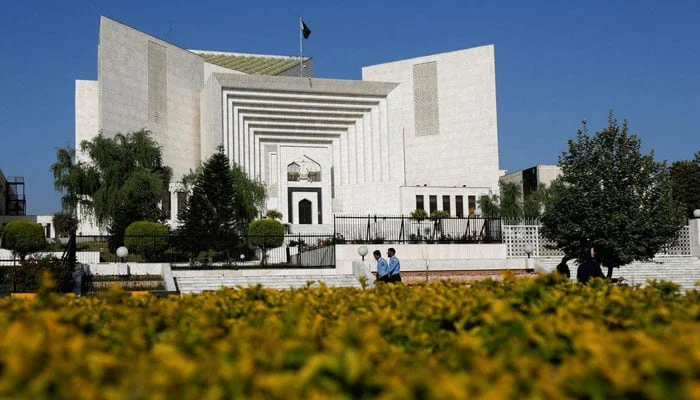ISLAMABAD: The federal government moved the Supreme Court on Tuesday to overturn its 2023 ruling in the Afiya Shehrbano Zia case, thereby limiting the ability of the Supreme Judicial Council (SJC) to prosecute former judges.
The action was taken soon after the supreme court postponed rendering a decision on a plea filed by former Islamabad High Court (IHC) judge Shaukat Aziz Siddiqui challenging his removal from office.
The Supreme Court Registrar, the SJC, and other parties have been listed by the government as parties in the petition filed under the SC (Practice and Procedure) Act, 2023, in opposition to the verdict in the Afiya Sheherbano case.
The matter prompted the supreme court to establish guidelines on the judicial council’s authority to pursue legal action against judges beyond the point at which they submit their resignations.
The administration made a demand that the Supreme Court reverse its decision in the Afiya Sheherbano case.
On June 27, 2023, a three-judge panel of the supreme court decided that the SJC cannot proceed with legal action against the jurists in the event that they resign or step down.
According to the ruling, judges who retire or step down are not covered by Article 209 of the Constitution, which defines what constitutes misconduct for judges on higher courts.
On Siddiqui’s plea earlier in the day, the Supreme Court declared in brief order:
“If deemed necessary, further judicial action can be taken by the Supreme Court.”
The judge enquired:
Should Shaukat Siddiqui’s appeal be granted, what kind of relief would be granted?
Is it possible for the Supreme Court to return the case to the Supreme Court?
If council action is not necessary, is the judge’s speech itself not in violation of the code of conduct?
It stipulated that the parties would have three weeks to provide their answers to the aforementioned queries.
It should be mentioned that the former IHC judge lost his job as a result of his remarks made on July 21, 2018, to the Rawalpindi Bar Association, in which he attacked intelligence agencies.
During his speech, the former judge charged delicate establishments with meddling in legal matters.
Subsequently, he faced numerous references, including one requesting his dismissal for remarks he made during the hearing of the Faizabad sit-in case in 2017, two related references alleging additional expenses for government housing, and one that the SJC investigated after receiving a complaint against him.







